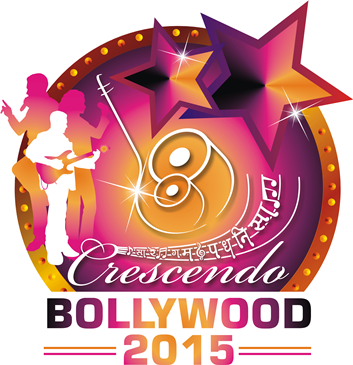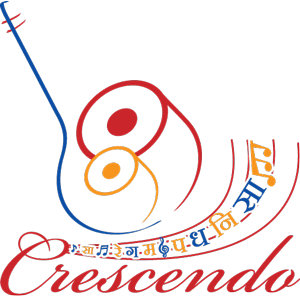| Rajabhau Kogje | ||
|---|---|---|
| Gharana | Khayal - Gwalior |  |
| Speciality | Vocal | |
| Guru |
Vinayakrao R Patwardhan | |
| Born | Please login to view this information | |
| Died | Please login to view this information | |
| More information at : | Please login to view this information | |
| Short Bio : | Information submitted below has been put here only for educational purpose and has been submitted by community users and users of the site. SwarGanga has not verified any copyright and takes no responsibility whatsoever. If you feel that you own copyright to the material below, please let us know and we will with you on the same. Pt. Anant Keshao alias Rajabhau Kogje was born on Thursday, 25th February 1926 at his maternal home in Pune, Maharashtra. His father Keshavrao was a clerk in Railway. His father and mother Sushila were devoted to music. Veteran music composer & author Keshavrao Bhole was related as paternal uncle of his father. Rajabhau’s father used to act in Marathi Musical dramas for a short time, before he joined his service in railway. So, his family always had a background of music. His mother used to listen Bhajans sung by Vishnu Digambar Paluskar at Kala Ram Mandir, when Kogje family was in Nasik. So, Rajabhau got the ‘Samskaar’ of music when he was in womb of his mother. Rajabhau started getting basic music lessons under his father at very early age. At the age of 6, Rajabhau was sent to Pt. Govindrao Multapikar of Jabalpur to take lessons in classical music. Pt. Multapikar was a disciple of Pt. Vishnu Digambar Paluskar. He became famous as ‘child prodigy’ due to his miraculous performances at the age of 8-10.From 1935 to 1938 Rajabhau always stood first in music competitions organized by Allahabad University. He stood first competing in Vocal music, Violin, Israj and Harmonium also. Along with music, he had regular academic training in Jabalpur, Pune & Sagar University. In 1939, Pt. Multapikar guided Rajabhau to Pt. Vinayakrao Patwardhan residing at Pune for further training. He gave him rigorous and disciplined training in classical music of Gwalior Gharana, especially Paluskar tradition till 1947. During this period Rajabhau passed both Sangeet Alankar and Sangeet Pravin examinations. (Mirashibuwa & Shankar Rao Vyas were the examiners!) After his success in Sangeet Pravin, his first concert in Pune was held by Sardar Abasaheb Mujumdar. Rajabhau, with his Guru's permission went to Banaras to learn delicacy and emotion of Banarasi thumari from the legendary singer Rasoolanbai. Rasoolanbai trained Rajabhau in various forms of semi classical music such as thumari, dadara, kajari, chaiti, sawan etc. He owed his command over Layabant and Taalbant to the legendary Pt. Govindrao Barhanpurkar of Jabalpur, from whom Rajabhau received tutelage in Pakhawaj and Tabla playing. When he was in Sagar, he used to train the military band, where is adapted staff notation and also composed many songs for parade. From 1947 to 1949, Rajabhau served in All India Radio, Nagpur as a composer and program producer. In 1955 he joined Morris College, Nagpur as a lecturer in classical music and retired as Head of the department I Feb 1984. He was felicitated by the Governor Dr. Pattabhi Sitarammayya at Nagpur. Rajabhau was given "Top Grade" by All India Radio. His concerts were broadcast in National Programmes and Radio Sangeet Sammelans. He participated in Tansen Samaroh at Gwalior, Gunidas Sammelan, Pt. Krishnarao Pandit Samaroh at Gwalior, Prayag Sangeet Sammelan, and in many other prestigious functions. He sang extensively for AIR in various stations, such as Nagpur, Pune, Mumbai, Indore, Lucknow, Delhi, etc. He presented a special feature ‘Naad Jidnyasa’ on Nagpur AIR with Narayan Mangrulkar and Krishnarao Jadhav. Rajabhau was gifted with an utterly tuneful, focused, melodious and powerful voice. His aesthetic Alaps, Bol-Alaps and intricate Taans were elevating. He could sing many forms of classical, semi classical and light music with captivating ease. He was a rare performer who could lucidly explain what he sang. His performances were always orderly, disciplined, chaste, chiseled in tunes and words. While unfolding the nature, form and content of a Raga, he took care to see that the interest of his listeners went on escalating with his aesthetic patterns of Alap and Taan with the help of Swar-s pleasing not only the ear but elevating the mind too. He exhibited a firm grip on Laya and intricacies of Taal with mastery over the aspects i.e. Alap, Bol-alap, Bol-taan and Taan patterns. He was equally fluent in Khayal, Thumari, Tappa, Tappa Ang Thumari, Bhajan. He used to present Thumari in Benaras, Lucknow & Panjab styles with keeping the stylistic distinctions. He had a vast repertoire of many rare Raga-s & Bandish-s and he himself created some Raga-s such as ‘ChhayaTilak’, ‘GunTodi’, ‘Komal Durga’, ‘Pancham Varjit Basant’, ‘Chandra Bahar’. He was Guru of Raja Bobde, Arun Kashalkar, Kalpana Banerji, Narayan Mangrulkar, Anirudhha Joshi, Rajendra Bhave & Sarita Bhave. Ajay Pohankar, Asha Khadilkar, Rajashri Pathak also got guidance from him. HMV released four cassettes album of Rajabhau on 24th February 1995. Also in 1994, Musirecca Company of Nagpur had released one cassette wherein he has sung Tappa, Thumari, Dadara and Bhajan. Rajabhau passed away at Nagpur on Monday, 26th April 1993. After his death, Nagpur Municipality gave his name to a road where his home was situated in Gokul Peth, Nagpur. (Bhushan Kogje) |
|
| Disciple tree | Please login to view this information | |
You might also like the following videos we randomly search for you from youtubePlease wait while we randomly search some videos |



